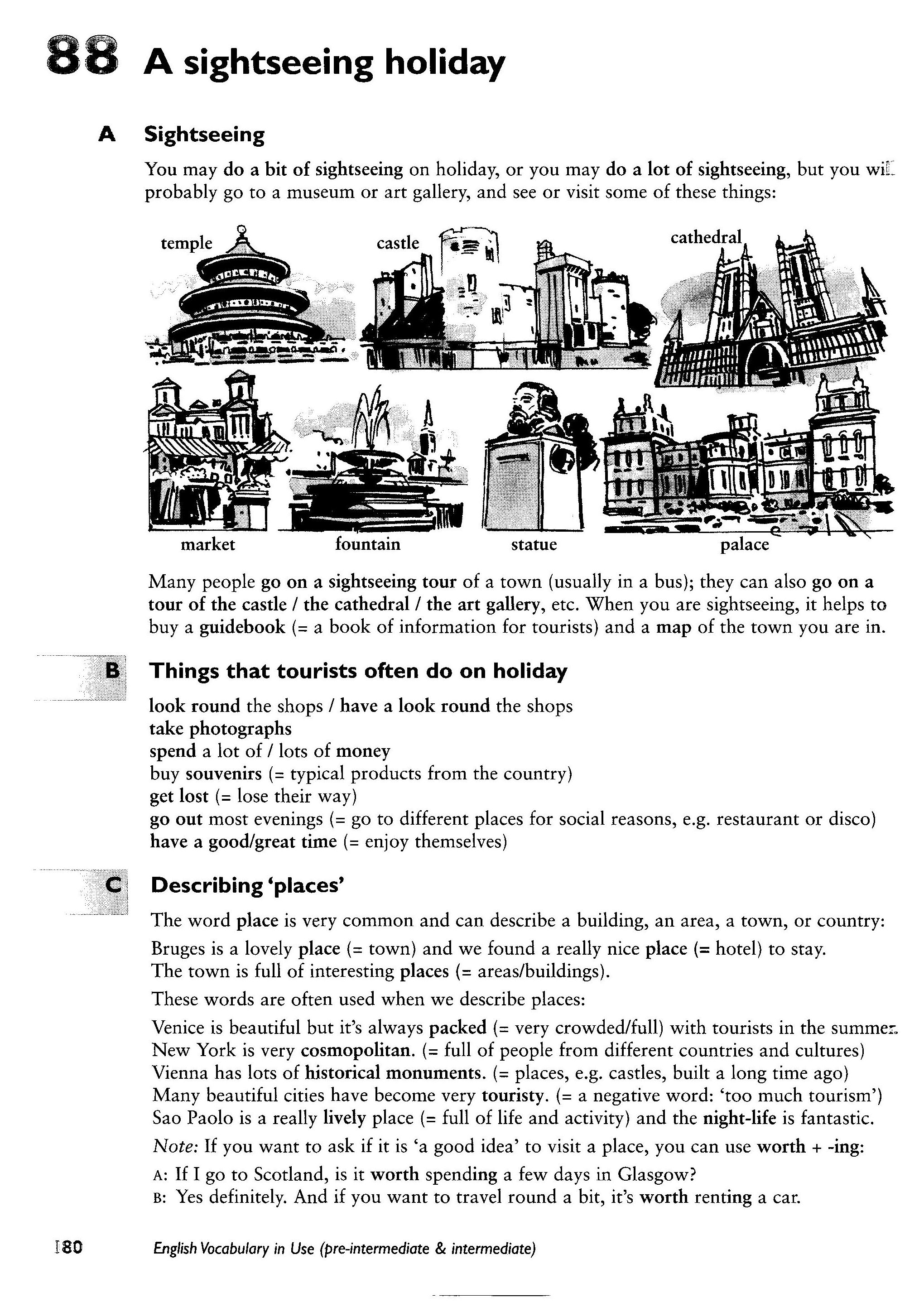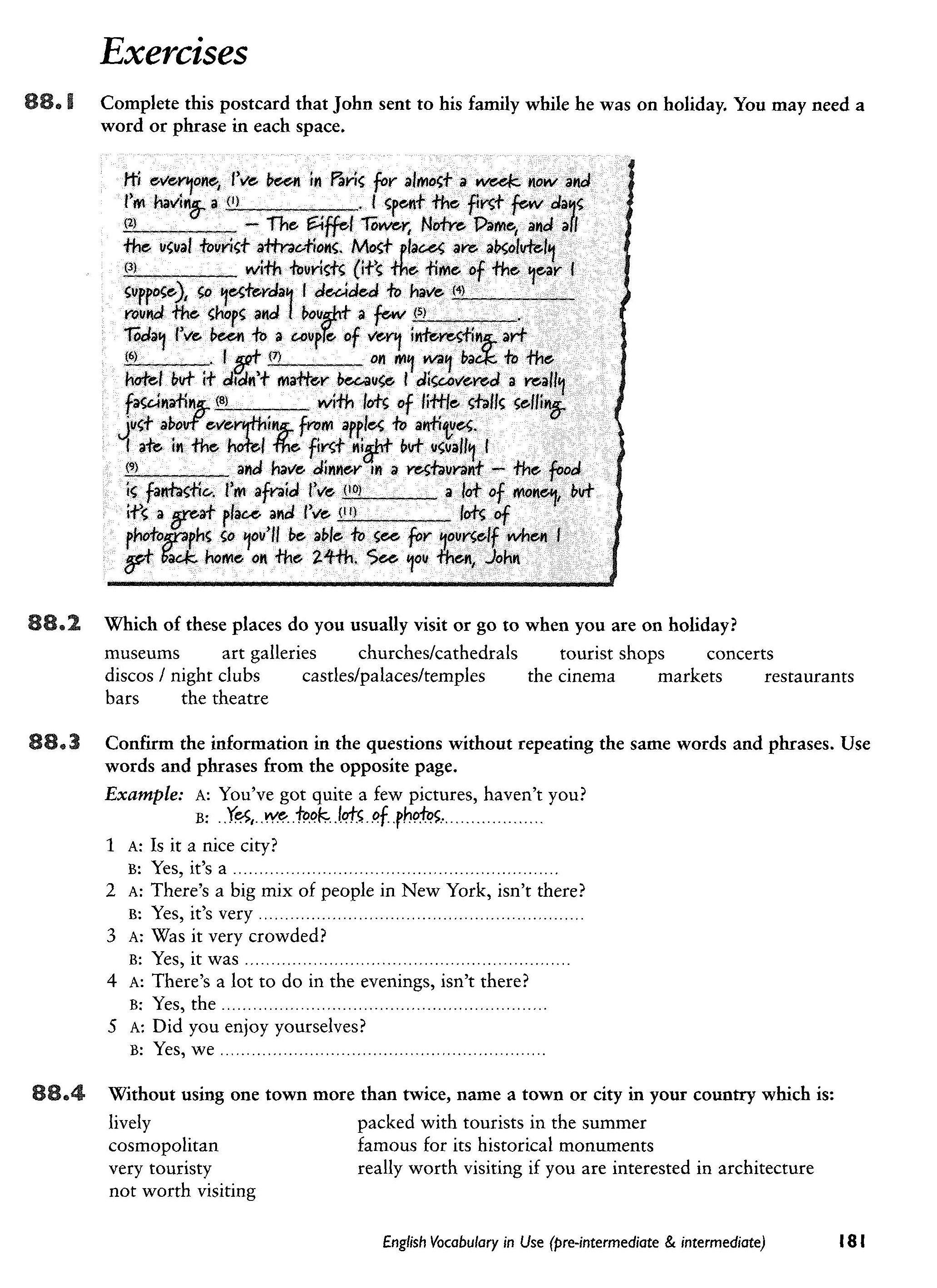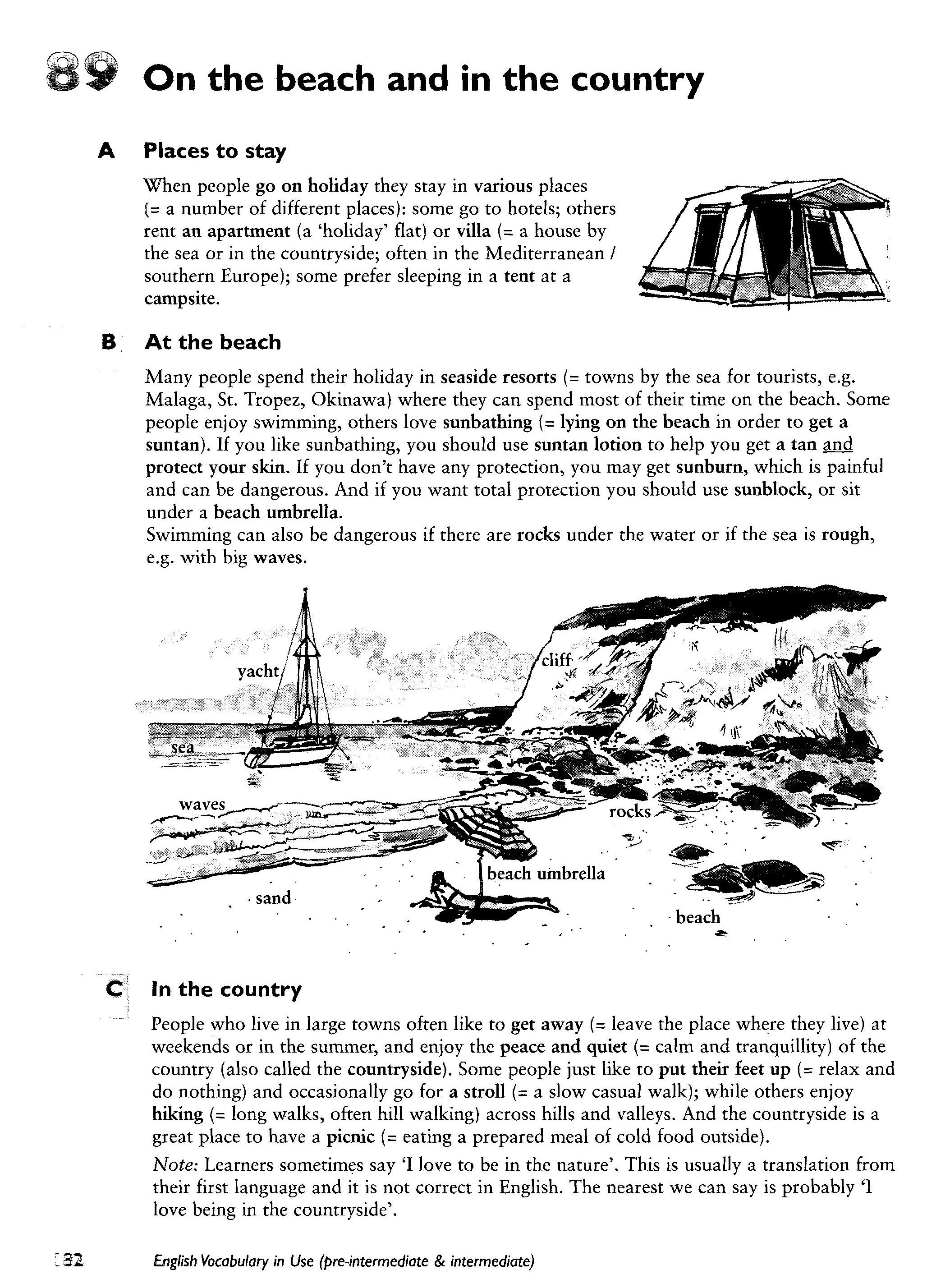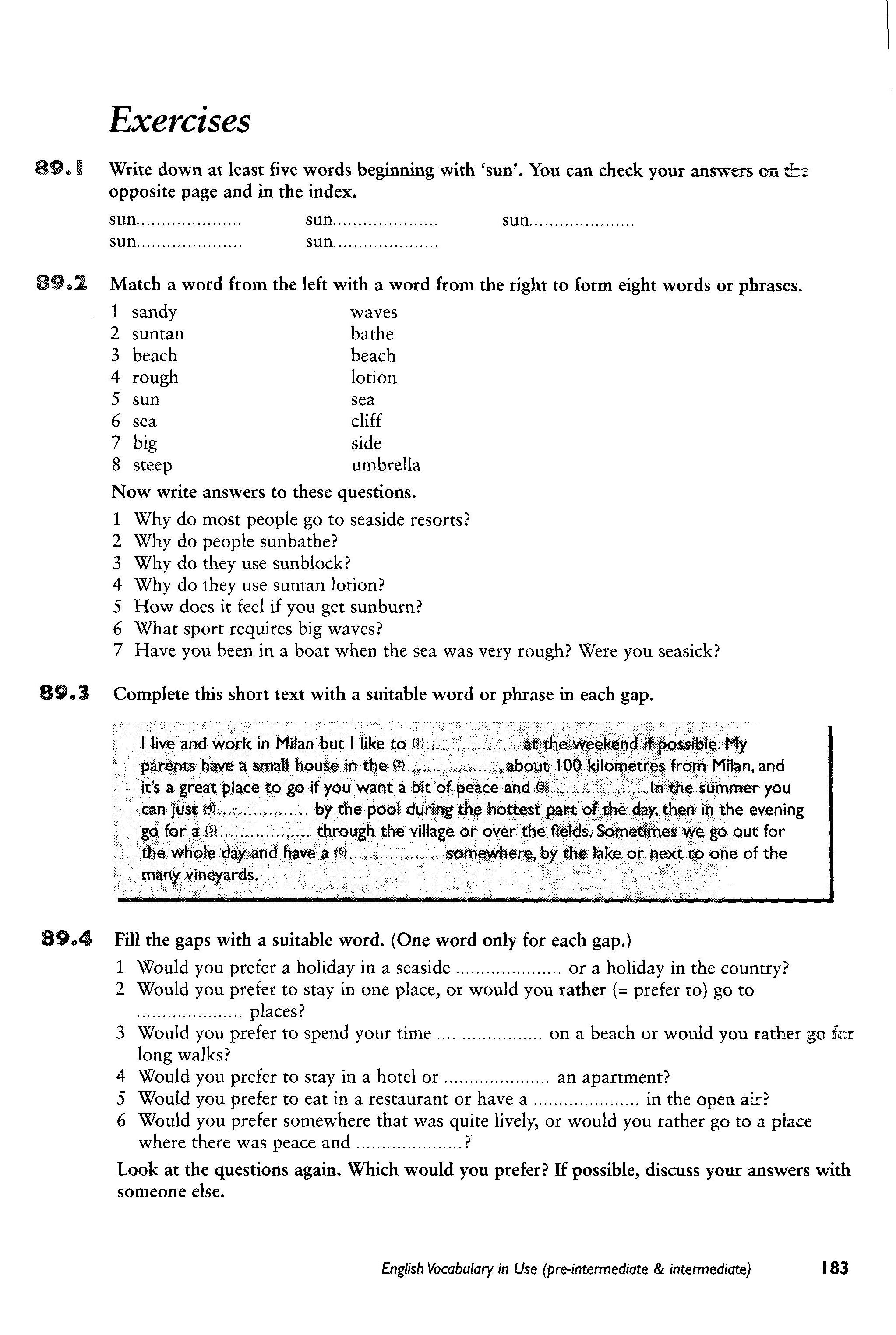
- •Методические указания по подготовке практических занятий Учебно-методические материалы по аспекту “Фонетика”
- •Tongue Twisters
- •Учебно-методическое пособие Кемерово 2007
- •Look at the words in the box and make sure you know all of them.
- •A) Look at the picture and fill in the gaps with the correct letters.
- •A) Fill in the gaps with the correct numbers.
- •A) Read the text and say what home means to the writer.
- •V. What things can you see in the picture below? Describe the picture using there is/there are.
- •VI. Choose is or are.
- •VII. Put in there is / there isn’t / is there / there are / there aren’t / are there.
- •VIII. What things can you see in the picture below? Put tick () or a cross () for each, then talk about the room, as in the examples.
- •IX. This is Sally’s living-room. Ask and answer questions using the prompts below.
- •X. Write sentences using the prompts.
- •I. Look at the words in the box and make sure you know all of them.
- •II. Fill in the blanks. The first letter of each missing word is given.
- •III. Now read the text again and answer the questions.
- •IV. Join both parts into full sentences.
- •V. Complete these sentences with a suitable noun or verb.
- •VI. A) Look at these types of houses. Which would you find in a suburban, urban or rural area?
- •VIII. Think of as many adjectives as you can to make collocations to complete the spidergrams. Which of these features are there in your house? Tell your partner.
- •IX. Write down four more positive things and four more negative things you could say about a house/flat or the rooms in a house/flat.
- •X. Now think about your answers again. Which positive features are the most important for you? Which negative features do you hate the most?
- •XI. Fill in the blanks with comfortable or convenient. In cases where both are possible, explain the difference in meaning.
- •XII. A) Scan the text for some particular information about the most traditional types of housing in Great Britain. Housing in Britain
- •XIII. A) Go through the table and look up the words you don’t know in the dictionary.
- •Model: Ann lives in a traditional cottage in the country. The cottage is …
- •Analysing a Model Text
- •XIV. A) Read the letter and underline the topic sentences.
- •X V. Read the rubric and underline the key words. Then, answer the questions.
- •XVI. Write a letter to your friend describing the flat/house you live in. You can use the following plan.
- •I . Look at the words in the box and make sure you know all of them.
- •II. Underline the word which is the odd one out. Explain your choice.
- •III. Here are some things you find in the kitchen or lounge but the letters are jumbled. What are they, and where do they belong?
- •IV. Complete the sentences with one of the words given.
- •V. Make up sentences according to the example thus completing the descriptions.
- •VI. Imagine you have just moved into a new flat, and for the first six months you can only have six of the following. Which would you choose and why?
- •VII. Look at the picture, then read the short text and underline the correct preposition.
- •VIII. Look at the picture and read the text, then fill in next to, behind, on or under. Finally, ask and answer questions, as in the example:
- •IX. Look at the two pictures. Now the room is empty but what was there in the room last week? Write sentences with there was… or there were …
- •X. Read and translate the text. The Clarks’ House
- •XII. Imagine that you have just visited the Clarks’ house. Share your impressions.
- •X III. Listen to the dialogue and fill in the gaps. (Английский язык. Продвинутый разговорный курс. The Linquaphone Institute. – London, Programme 5, text 3.) Arranging the House
- •XIV. Listen to the dialogue again, then, read it out imitating the speaker’s intonation and tempo.
- •XVI. Read the text and choose the words that are mentioned in connection with each colour.
- •XXI. Read the advertisements below. Which of the places would it be worth your having a look at, why?
- •XXIII. In pairs, take roles and act out dialogues about each of the advertisements in Ex. XXI.
- •I. In the sentences below there are some common phrases with home. Look at the dictionary entries and underline the correct option in each sentence.
- •Underline the correct word in each sentence, then say what the phrases mean.
- •III. Match the idioms in the left column with their Russian equivalents in the right column.
- •IV. Highlight the meanings of the proverbs and sayings, making up short situations. Tell them in class.
- •A) Look at the title of the article. What do you think it is about?
- •Read the article and explain the words in bold.
- •In Search of the Perfect Home
- •I. Cross out the odd word. What aspect of housing does each set of words refer to (cost, style, size, description, location)?
- •II. Match the verbs to the nouns.
- •III. Circle the correct item.
- •IV. Insert the necessary prepositions.
- •Put in there was / there wasn’t / was there / there were / there weren’t / were there.
- •VII. Translate into English.
- •I. Look at the words in the box, make sure you know all of them.
- •III. A) Say whether you enjoy reading:
- •IV. Read the text and say why the author never travels without books.
- •V. Make your own list of books to read
- •VI. A) Read and discuss.
- •VII. A) Work in pairs. Do the questionnaire and check your score. What are your chances this term?
- •VIII. Write the Past Participle of the verbs.
- •IX. Match the questions and answers.
- •X. A) You haven’t seen your friend Jenny for five years. Complete your questions.
- •XI. A) Read the poem and find the sentences with the Present Perfect Tense.
- •XIII. A) Read this letter from Heide to her friend in America. Are there any verbs which you can use to describe changes in your life during the last year?
- •XIV. In this exercise you have to put in since or for.
- •XV. Mark the Present Perfect or the Past Simple form of the verb.
- •XVI. Are the underlined parts of the sentence right or wrong? Correct the ones which are wrong.
- •XVII. A) Look at the questionnaire. Add two more questions. Complete the questionnaire about yourself.
- •XVIII. Put the verb into the correct form: Present Perfect or Past Simple.
- •XIX. Read the text and discuss the following.
- •Reading Detective Stories in Bed
- •XX. A) Read the text and express the author’s point of view. Do We Really Need Poetry?
- •XXI. Translate the poem given in Exercise XI. Learn it by heart.
- •I. Look at the words in the box, make sure you know all of them.
- •Reading habits:
- •II. Fill in the blanks. The first letter of each missing word is given.
- •The p……. Was boring, but the special effects were good.
- •III. Paraphrase the following sentences using your active vocabulary.
- •IV. Complete the dialogues with these words.
- •I. Look at the words in the box, make sure you know all of them.
- •II. Who writes what? Arrange the words like this:
- •III. Cross out the odd word.
- •IV. There are two lists – the left one contains the names of authors and the right one – the genre of literature which we usually associate with them:
- •V. Associate the authors with their books:
- •VI. Read the text to find out if you are right.
- •VII. Read the titles of Shakespeare’s plays and give their Russian translations.
- •VIII. Read the text about William Shakespeare and say what new have you learnt.
- •I. Look at the words in the box, make sure you know all of them.
- •II. Guess the word by its definition.
- •III. A) Master the pronunciation of the following proper names.
- •IV. In pairs, read the dialogues aloud.
- •V. Make up your own dialogues on one of the following situations.
- •VII. Look at the survey results in the table. What do the percentages tell you? Is the printed word dying?
- •VIII. A) In pairs, tick (V) the arguments in favour of electronic media.
- •0 E eeee
- •X. Read the text and write out all the points for and against a) paper books, b) electronic media. The future of the book — if it has a future
- •XI. Role – play. Act out a discussion on the topic “e-books will replace paper books.”
- •XI. Read the book review and match the paragraphs to the topics.
- •XII. A) Look at the list below. Which phrases refer to books? films? both?
- •XIII. A) Use the adjectives below to complete the table.
- •XIV. Read the rubric below and answer the questions in the plan.
- •XV. Write your review in 120-180 words. You can use the plan and the review in Ex. XI as a model.
- •I. Read the author’s biography and answer the questions.
- •III. Read the extract again and mark the sentences с (correct) or I (incorrect). Then, explain the words in bold.
- •III. Make questions with the words given. Ask your partner to answer your questions.
- •IV. Complete the text. Use these verbs in the past simple or the present perfect tense.
- •V. A) Think about recent news in your country. Choose six of these topics.
- •I. Do the crossword.
- •II. Mark the correct form.
- •III. Translate from Russian into English.
- •I. The title above is taken from an English proverb. What do you think it means?
- •II. When was the last time you were ill? Do you worry about staying well? Do you think you’re fairly healthy? Read the questionnaire and find out.
- •III. Asking about health.
- •IV. Learn the parts of the body that you don’t already know.
- •V . Complete the chart.
- •X. Read and translate the Examples.
- •XI. Correct the following statements, beginning each sentence with one of the following phrases.
- •XII. A) Read the dialogue and say what’s wrong with the man.
- •XIII. Consult the dictionary and add some more words to the given diseases.
- •XIV. Match the diseases with their symptoms.
- •XV. A) Choose an appropriate expression from the list given below and say what medical problems you might have if ...
- •XVI. You are giving advice to a friend. Use should or shouldn’t.
- •XVII. Now you have to read the situations and write sentences with should (have) and shouldn’t (have). Sometimes you have to use the present, sometimes the past.
- •XIX. A) Put the parts of the dialogue in the correct order.
- •XX. Make up your own dialogues describing your last visit to the doctor. Keep in mind the following points:
- •XXI. A) Read the text and answer the questions.
- •Ten things to help you live longer
- •Visit your doctor for a check–up every year.
- •XXII. A) Some people claim that the cause of all our problems with health is stress. What is stress? What causes it? What are the ways to reduce it?
- •XXIII. A) Read the extract carefully and note down the following points.
- •XXIV. Make sure you know the names of these medical specialists.
- •XXV. What organs do the specialists treat? Match the name of the doctor with the area in which he specializes.
- •XXVI. Read the dialogues and act one out.
- •XXVII. A) Read the texts about Health Services in different countries;
- •XXVIII. Say that people are obliged to do something or that it is
- •XXIX. Answer the questions in the negative, saying that something is prohibited or not required.
- •XXXI. Make up short dialogues as in the example.
- •XXXII. A) Read the information about ways of writing a story. Stories
- •Paragraph Plan for Stories
- •Tim Shown Is Taken Ill.
- •A) Read the title and say what the text is going to be about.
- •A) Read the text and complete the diagram.
- •V. After paying large amounts of money to join a gym, many people don’t go regularly. Others eventually stop going altogether. What pieces of advice would you give to such people?
- •VI. Compare your pieces of advice with motivation tips given below.
- •VII. A) Complete the questionnaire.
- •V. Role-play. Prepare a talk show on the topic “How Can We Live Longer?”
- •VI. A) Study the rules for an e-mail letter.
- •I. Replace the underlined words by verbs from the same root and make all other changes necessary.
- •II. Fill in the words from the list then explain the phrases in bold.
- •III. Read these proverbs and quotations and illustrate them in
- •IV. A) Read the text and mark some medical terms and word combinations.
- •A victim to one hundred and seven fatal maladies
- •VI. Let’s have fun! Read some jokes on a medical subject.
- •VIII. Make up dialogues through mime. The performed actions should be rather slow to allow the other students to speak for the mimes.
- •I. Choose the correct word and use it in the right form.
- •II. Choose the correct expressions.
- •III. Fill in an appropriate word.
- •IV. Fill in the missing preposition.
- •V. Translate the following sentences into English using should, must,
- •Учебно-методические материалы по темам “Russia”, “Moscow”
- •The russian federation
- •Учебно-методические материалы по теме “Around the City”
- •I. Populated areas
- •II. Parts of a town
- •III. Streets
- •IV. Means of transport
- •V. Traffic
- •VI. Town establishments/buildings
- •1. Accommodation
- •2. Cultural Establishments
- •VII. Constructions
- •VIII. Associated activities
- •IX. Asking the way
- •Only a Madman Would Choose to Live in a Large Modern City
- •Учебно-методические материалы по темам “Kuzbass”, “Kemerovo”, “My Native Place”
- •Kuzbass/Siberia
- •IV. Population
- •Kuzbass
- •Kuzbass
- •I. General Information
- •II. History and people.
- •III. Modern picture of Kuzbass life.
- •IV. Cities of Kuzbass.
- •My Native Place (Kemerovo)
- •Kemerovo
- •Учебно-методические материалы по теме “Holidays” Holidays
- •Holidays and how to spend them
- •I. Divide the list of words into three groups: words connected with camping holiday, seaside holiday and sightseeing holiday
- •II. Fill in the blanks with the following words:
- •Учебно-методические материалы по теме “Shopping”
- •How much does it cost to have this clock gift … ?
- •A small building in the street selling newspapers, sweets, etc.
- •The place where you pay for things in a supermarket.
- •Read the text and do the tasks that follow:
- •Read the following texts and answer the questions given below. Shopping Online
- •Buying on Credit!
- •Shopping for Food
- •Dairy products
- •Butcher's shop
- •Shopping for Consumer Goods
- •II. Departments
- •V. Quality
- •VI. Other shopping terminology
- •VI. Speech Patterns
- •Учебно-методические материалы по теме “Meals and Cooking”
- •Young People’s eating habits
- •Fast food
- •Why are they so popular among young people?
- •3. What does this cartoon mean? Do you find it funny?
- •4. Choose one of the following statements and prepare an argument to support it. (Don’t worry if you don’t believe in it!) Make a few notes first.
- •What Does it Come Under?
- •Ex. 1. Master the pronunciation of the following words:
- •English Tea
- •Vegetable Soup
- •Stewed Beef and Pork
- •Home Made Cake
- •Eating Out
- •IV. Dialogues
- •1. Larry at Lunch
- •2. At Dinner
- •3. At Dinner
- •6. At the Restaurant
- •7. Lunch for Two
- •1. Завтрак
- •2. Разговор двух матерей
- •3. Разговор между матеръю и дочеръю
- •4. В ресторане
- •5. В ресторане
- •7. Обед у друзей.
- •Topics for Oral Compositions
- •The Luncheon
- •Waiter jokes
- •B) Paraphrase the sentences using food idioms
- •Учебно-методические материалы по теме “Great Britain”
- •1) Pronounce the following words. Translate them into Russian.
- •Great britain
- •Introducing london
- •Some more glimpses of london
- •Учебно-методические материалы по аспекту «Письменная практика» a Broken Vase
- •The Gift of the Magi
- •Chinese Vase
- •Witches’ loaves
Holidays and how to spend them
The life of each of us is full of “highdays”, exciting days, which we look forward to – like school trips, birthdays, visits to the circus or the theatre – and which we love to remember afterwards.
Other highdays are days, which many people can share – whole families, whole villages, sometimes whole nations – like Bonfire Night, Pancake Day in the United States of America. They are days on which people have been having a “high old time” for many years, sometimes for centuries.
Holidays used to be “holy day” in the calendar, when there was a rest from everyday work and people celebrated in honour of a particular saint of happening in the Church’s year: like St. George’s Day, Whitsun or Christmas.
Holy days were often printed in red in the calendar to remind people that they were special days, so they came to be known as “red-letter days”. Some of these holy days are many centuries old too, and all countries and races of people have their own.
Highdays and holidays are very important, because they bring something special into everyday life; take part in them and enjoy them as much as you can.
For people who work at the same job 8 hours a day, 11 months of the year, holidays are very important. A holiday is the one time in the year when people feel they can relax and forget about the pressures and problems that are normally part of their lives.
The whole point of holidays is that it should be a change. Most people like a change of scene; if they live up-country, they like to get a big town and spend their time looking at shops and visiting cinemas and museums and art galleries, and having gay evenings at hotel and dance; if they are city-dwellers, they like a quiet holiday in the hills or by the sea, with nothing to do but walk and bathe and lie in the sun.
However, changes of scenes are usually expensive, and many people, from lack of money, are obliged to spend their holidays in the same surroundings as their working days. What can these do it make their period of rest a real holiday?
The best thing is to choose some of occupations entirely different from their daily vacation.
The whole virtue of holidays, which brings a change of scene or occupation, is that it is only temporary. Sooner or later, it comes to an end, and the holidaymaker goes back to his normal life. If he has used his holiday well, he ought not to feel a very deep regret that it is over, however much he has enjoyed it, for it ought to have refreshed him and filled him with vigour for the true work to which he is now returning.
A Trip to the West Coast.
Vacations offer an interesting topic of conversation for friends and acquaintances. Travellers often send postcards to their friends and bring them back a small gift or souvenir. Showing pictures, slides, or videos from a trip is also common.
Fatima: |
Oh hi, Julie. Finally back from your vacation, I see. |
Julie: |
What do you mean, “finally”? I feel like I’ve only been gone for two days instead of two weeks. |
Fatima: |
Well, you know what they say — “Time flies when you’re having fun.” You did have fun, didn’t you? |
Julie: |
Oh, it was marvelous. It is so beautiful. And it was so nice to get away from this cold, miserable weather. And those mountain views — they were absolutely breathtaking. |
Fatima: |
How was Vancouver? |
Julie: |
Busy. So much to see and do there. It was nice to take an urban holiday for a change, although next year I’ll be glad to go camping again. |
Fatima: |
So what all did you do? |
Julie: |
Oh, we went to Stanley Park and the aquarium, up Grouse Mountain and to museums and galleries. All the usual touristy things. |
Fatima: |
Did you get over to the island? It’s only two hours away by ferry, isn’t it? |
Julie: |
Yes, it was funny how on the ride over, everyone stayed out on deck to enjoy the view, but on the way back, we just sat inside like seasoned travellers and read magazines! |
Fatima: |
Victoria is a city I’ve always wanted to visit. They say it’s such an elegant city with a lot of British influence. |
Julie: |
We liked Victoria so much that we stayed on a day longer than we had planned. |
Fatima: |
Oh, well, one of these days I’ll get there myself. In the meantime, I better get back to work. |
Julie: |
Before you go — I got you this pin for your collection. |
Fatima: |
A tiny totem pole! It’s beautiful. Thank you very much. |
Julie: |
You’re welcome. Maybe you can come over on the weekend and I’ll show you my pictures and my souvenirs. |
Fatima: |
Sounds great. |
you know what they say an expression used to introduce a saying or proverb; "they" refers to people in general
time flies time goes by quickly
breathtaking exciting or wonderful
touristy slang adjective form of “tourist”
ferry boat that transports cars and people
seasoned travellers experienced travellers
I better reduced spoken form of "I’d better"
totem pole poles carved by some northwest coast Aboriginal peoples
souvenirs small items to remind travellers of the places they have visited
Discussion.
Where do you think this dialogue is taking place? What is the probable relationship between Fatima and Julie?
Has Fatima ever been to the west coast of Canada?
Change the dialogue so that Julie has just come back from a visit to a city near where you live. Practise variations of the dialogue in pairs.
Give a short oral presentation to the class on a place you have visited or a place you would like to visit.
What kind of holiday do you prefer — sightseeing in a city, camping out or relaxing in a resort?




